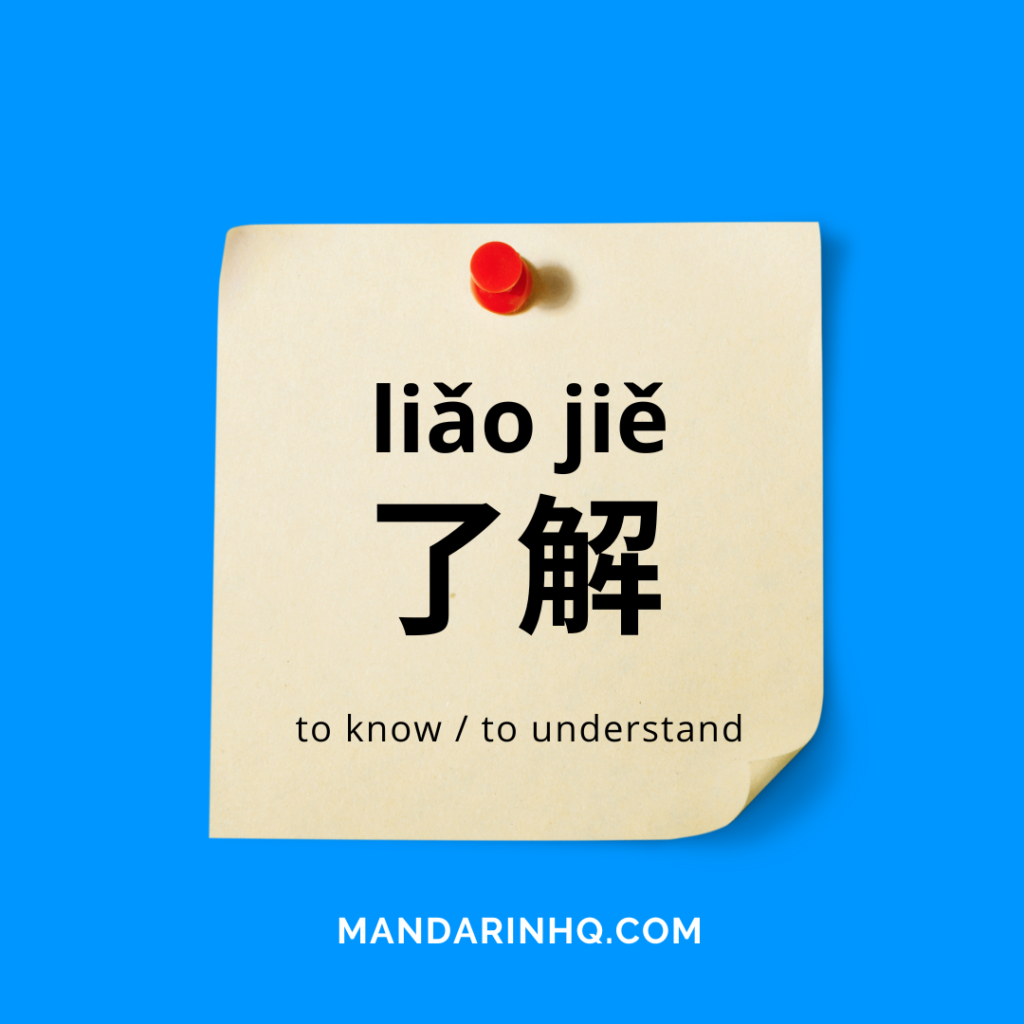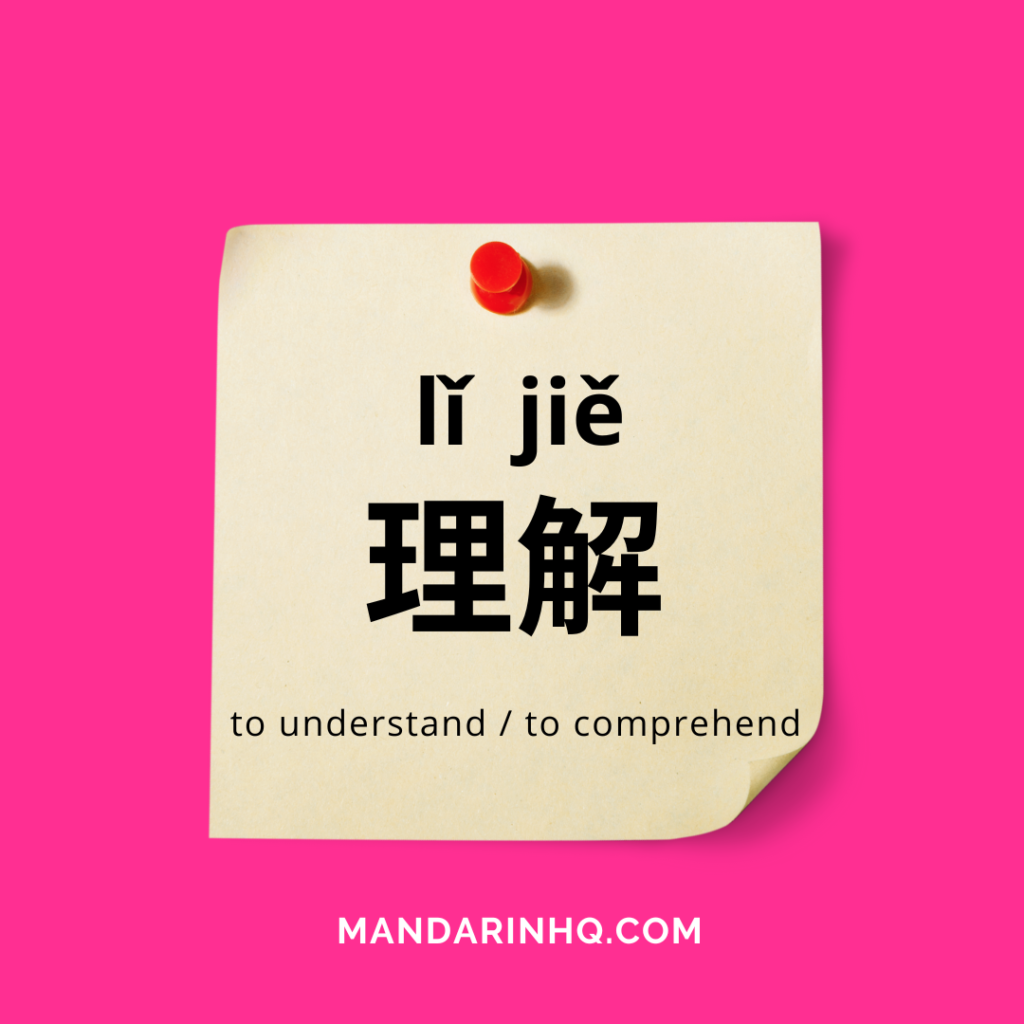The words 了解 (liǎo jiě) and 理解 (lǐ jiě) can both be used to say that you "understand" in Chinese.
In this video we take a look at some of the key differences between them and learn how to use them correctly!
The key differences between "了解 liǎo jiè" and "理解 lǐ jiě"(A summary of the video above)
"了解 liǎo jiě"
In classical Chinese "了 liǎo" means "complete", so "了解 liǎo jiě" is "to completely understand" in the sense that you know something (or somebody) well.
Example 1:
A: zhí zǒu, yòu guǎi, zuǒ guǎi, dì tiě zhàn jiù zài kā fēi guǎn duì miàn.
直走,右拐,左拐,地铁站就在咖啡馆对面。
Go straight, turn right, turn left, the subway station is opposite the cafe.
B: liǎo jiě, liǎo jiě.
了解 ,了解。
I got it.
Example 2:
wǒ liǎo jiě zhè gè xīn cí de yì sī le,xiè xie lǎo shī!
我了解这个新词的意思了,谢谢老师!
I know the meaning of this new word, thank you teacher!
Example 3:
nǐ dōu bù liǎo jiě wǒ.
你都不了解我。
You don’t know me at all.
Example 4:
wǒ men gāng gāng rèn shi, wǒ bù liǎo jiě tā.
我们刚刚认识,我不了解他。
We just met and I don't know him.
Example 5:
wǒ hěn liǎo jiě wǒ de fù mǔ,tā men huì gěi wǒ zuì hǎo de.
我很了解我的父母,他们会给我最好的。
I know my parents well and they will give me the best.
Example 6:
tā zài shàng hǎi zhù le 20 nián,tā fēi cháng liǎo jiě shàng hǎi.
他在上海住了20年,他非常了解上海。
He has lived in Shanghai for 20 years and he knows Shanghai really well.
"理解 lǐ jiě"
"理 lǐ" refers to "logic”, so you can think of "理解 lǐ jiě" as "to understand the logic or reason"
This is perfect for when you can empathize with someone because you’ve experienced something similar.
Example 1:
A: zì cóng wǒ de gǒu sǐ hòu,wǒ yī zhí hěn nán guò.
自从我的狗死后,我一直很难过。
I’ve been so sad since my dog died.
B: wǒ lǐ jiě nǐ. wǒ liǎng gè yuè qián shī qù le wǒ de gǒu,
我理解你。我两个月前失去了我的狗,
I understand, I lost my dog two months ago
wǒ xiàn zài réng rán hěn shāng xīn.
我现在仍然很伤心。
and I’m still devastated.
Example 2:
nǐ tài bù róng yì le, wǒ lǐ jiě nǐ.
你太不容易了,我理解你。
You’re having a hard time. I understand you.
Example 3:
wǒ lǐ jiě nǐ de zuò fǎ.
我理解你的做法。
I understand why you did it like that.
Example 4:
wǒ lǐ jiě tā xuǎn zé zhè fèn gōng zuò de yuán yīn.
我理解他选择这份工作的原因。
I understand why he chose this job.



